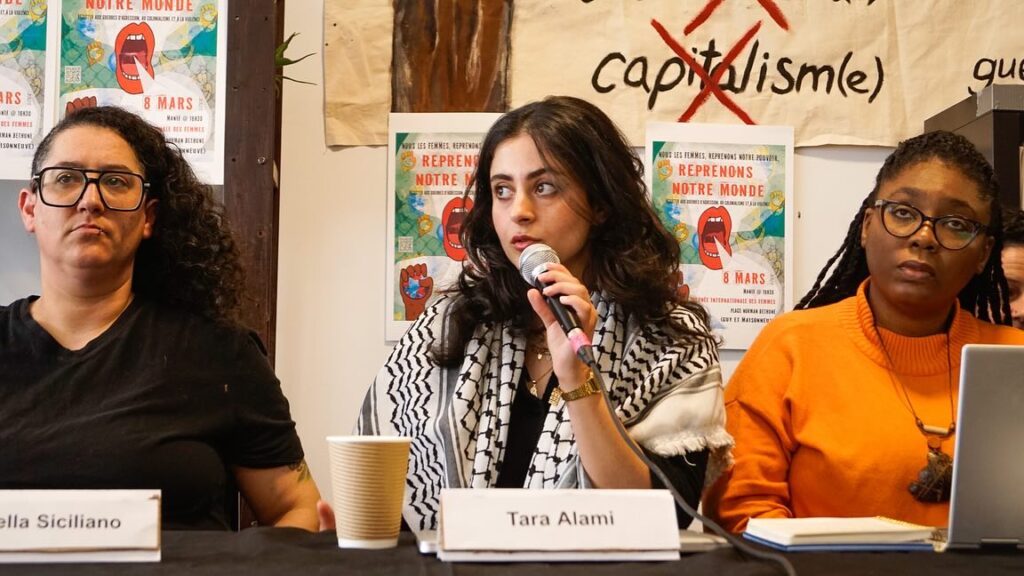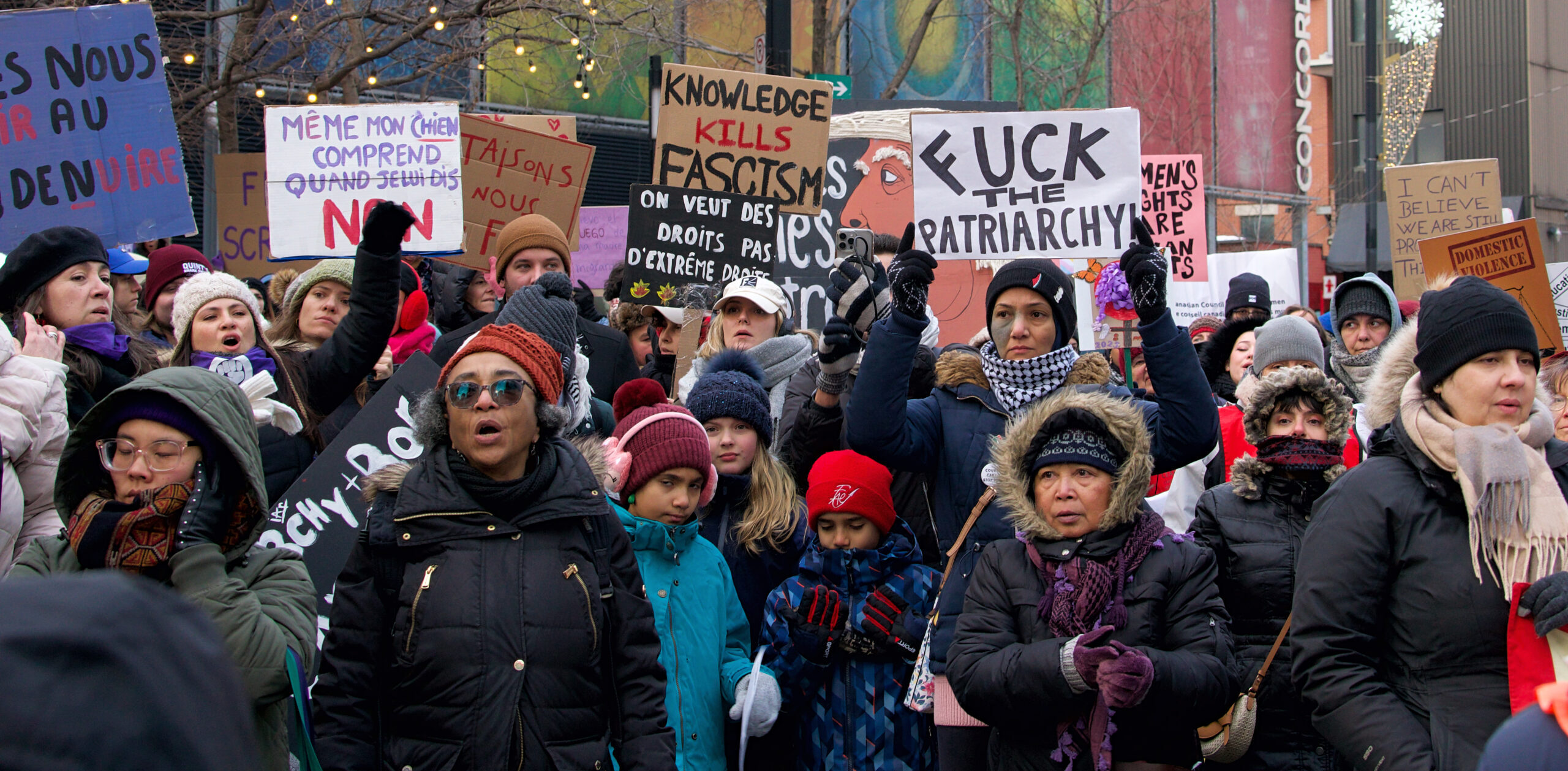Saturday, March 8 marked International Working Women's Day. Throughout the country and beyond, crowds marched and demonstrators called attention to working women's issues in Canada and abroad. The North Star spoke to activists and organizers from various sectors and backgrounds.
"This day is an opportunity to honour our struggles and memories of the historic fight against patriarchal oppression, capitalism, imperialism and all forms of exploitation," says Viviana Carol, an organizer with the Immigrant Worker's Center in Montreal.
"From the streets to the workplace, from fields to factories, from classrooms to the front lines of political resistance, women continue to rise up and organize."
International Working Women's Day has origins in the struggles that took place in the early 1910s in the United States and western Europe for women's suffrage and against sex-based employment discrimination.
The Soviet Union established March 8 as the date of International Working Women's Day in 1922 to honour women's role in the 1917 Russian Revolution. It was later adopted by the socialist movement and communist countries. The 1970s saw it become a mainstream global holiday, increasingly under the name "International Women's Day" and often divorced from its socialist and communist roots.
Maki, a Vancouver-based organizer with Gabriela B.C., spoke about the importance of centring working women in the day's celebrations. "What we currently know as International Women's Day, it comes from the historic struggle of women workers and women in unions really fighting against capitalist exploitation, imperialist aggression."
"Working Women's Day for me is super important and really highlighting that we're not here for all women in the sense of women CEOs who are actively exploiting other women and actively exploiting the global south. It is working women that we are celebrating," she told The North Star.
Annie-Christine Tardif, a primary school teacher and vice-president of the FAE union spoke about the issues faced by workers in "traditionally female" jobsː
"In teaching, because we take care of young people, it's as if people take it for granted that because we're women, we're going to take care and we're going to give, that we don't need recognition or pay or working conditions. It's always in the back of our minds that we have to fight this idea when we fight for better working conditions."

Tara Alami, a Palestinian writer and organizer with the Palestinian Feminist Collective, drove home the connection between women's struggles and issues of class struggle and national liberation movements:
"It's important to understand our struggle as an ecosystem. Isolating or alienating one sector of our society, such as women, only serves to misunderstand or miscommunicate the nature of our struggle, which is communal and collective in nature across all sectors, whether that is the peasants, the workers, the women, et cetera."
Reileen Dulay, a human rights advocate from the Philippines, agrees: "Women's struggles are deeply connected to broader fights for fair wages, land rights, justice for indigenous peoples, and resistance to imperialism and fascism."
Given the federal government's recent changes to immigration policy and the increase of anti-immigrant rhetoric from establishment politicians, migrant issues are at the forefront of many activists' minds this year.
Diane, a vice chairperson for Migrante B.C., highlighted the precarity of migrant women workers. "In general migrant women are more likely in a more precarious situation here in Canada," she said.
"Migrant women [are] paid less than Canadian-born women. Even if you've been a long-time migrant, you still are four or five percent lower paid lower than Canadian-born. For newcomers, it's as much as twenty percent you're paid less than your Canadian-born counterpart."
Speaking at a press conference organized by Women of Diverse Origins in Montreal, Reileen Dulay detailed the conditions that migrants from the Philippines face in Quebec:
"In Quebec, for example, the Filipinos make up the third-largest population of temporary workers after Guatemala and Mexico. So from the first to third quarter of 2024, our country already exported 2.05 million overseas Filipino workers, and 50.52% are women."
She continued: "It's not a surprise as well that the destination countries of most of these OFWs (Overseas Foreign Workers) are those who are not signatories to the International Convention of the Protection of Migrant Workers, nor do these countries having good policies on women. This leads [migrant] women to accept pretty loose jobs abroad with little to no protection from the government."
Dulay ended her intervention by quoting Filipina poet and revolutionary Lorena Barros. "We always bring [her words] with usː 'A woman's place is in the struggle.'"


